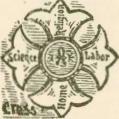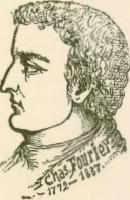212 IIISTORIC GROWTH OF MAN.
reach of our understanding. We know that the socalled wise men have said so, but they argued from false premises to worthless and blind conclusions.
In many directions men have foand truths or laws which appear to be universal, laws which appear to apply to all objects everywhere. Such are the laws of number, space and form in mathematics. Twelve angels would be three times as many as four angels, just as twelve oranges would be three times as many as four oranges. It is the soul of man that recognizes and considers these truths. The search for universal truths is the proper business of philosophy. And surely the soul is doing a bad piece of work when in searching for truth it tries to reason itself out of existence.
A true religion will only require us to obey laws which are within our own natures. The authority is internal, not external. The laws are not imposed upon us by a superior being. And these laws cannot abridge or interfere with our personal freedom.
If we have twelve groups of faculties, as science has proved, it follows that a universal religion must be twelve-fold. It must deal with all these; it must harmonize these twelve-fold relations. It is selfevident that each group of faculties must have its own special laws. Thus the laws of reasoning are not just the same as the laws of memory; those of perception are not the same as those of ambition. Each of these laws has both a spiritual and a physical side, both internal and external relations.
Along with this enlarged scope of religion our modern science gives us such means for research and proof that all persons can understand these vital
THE MORAL LAW. 213
truths in the same manner. This will bring to an
end the long series of religious sects, of bitter antago
nisms and savage persecutions which have darkened
the pages of religious history. Men will come to agree
upon one religion as they agree on one system of
arithmetic or any other branch of knowledge. Religion must advance, as other branches of knowledge have done, toward more and more definite ideas, towai d more and more practical forms for expression.
The universal religion will express itself through symbols to a greater extent than any form of religion in past times, But with this great difference. That these symbols, and ceremonies as well, will all be in full harmony with those laws of universal analogy which are the real basis of all
figures of speech, of all symbolism and metaphors. With a clear laws of analogy we shall be in no danger of losing the soul of things through attention to its external forms. We shall always feel the radiant inward life through the outward drapery of beauty.

